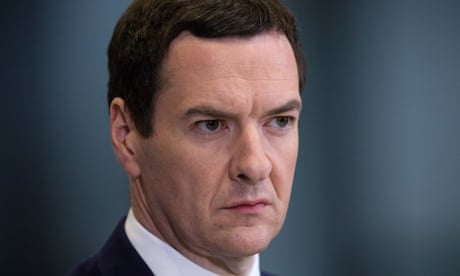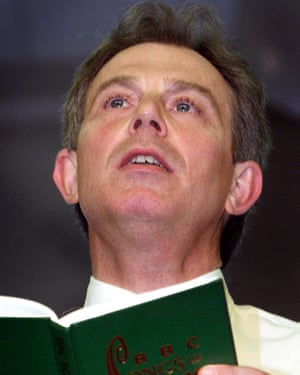Had things turned out differently, George Osborne would now be counting down the days to becoming prime minister. His close friend David Cameron had pledged to stand down before the next general election and a smooth transition was planned. As the architect of Cameron’s unexpected overall majority at the 2015 election, Osborne appeared to have the keys to 10 Downing Street there for the taking.
Instead, he is living proof of Enoch Powell’s dictum that all political careers end in failure unless they are cut off in midstream at an opportune moment. Osborne will be remembered as the austerity chancellor who got the Brexit referendum campaign spectacularly wrong and was then brutally sacked by Theresa May.
His personal responsibility for last June’s referendum needs to be put into perspective. He was against the decision to hold a plebiscite and told Cameron he was taking an unnecessary risk. Once the decision had been taken, however, he took control of the campaign and opted for the same strategy that had proved successful in the Scottish referendum of 2014 and the general election the following year: a warning that a vote for change would have severe economic costs.

This time it didn’t work. In part, that was because the EU referendum was an opportunity to protest about low pay, welfare cuts and stagnant living standards. In part, it was because the Conservative-supporting papers – who had backed Osborne when he was taking on Alex Salmond and Ed Miliband – came out strongly against what they called Project Fear. In part, it was due to overkill.
When it became clear that many voters were impervious to the warnings, Osborne doubled down. He warned that the economy would plunge into an immediate recession in the event of a vote for Brexit. He said he would be forced to bring in an emergency budget that would raise taxes and cut spending by £30bn. But there was no last-minute swing to remain and when Cameron stepped down as prime minister on the morning after the referendum, Osborne’s days were numbered. A political career that saw him become an MP before his 30th birthday, shadow chancellor before he was 35 and chancellor before turning 40 was effectively over at the age of 45.
Osborne’s rise was smoothed by the financial crisis of 2007 and the deep recession that followed. As shadow chancellor, he had two main lines of attack: Labour had failed to regulate the City properly and had borrowed too much.
The first charge was justified, and Osborne responded by giving far more power to the Bank of England to ensure there was no repeat of the reckless lending seen before 2007. The global nature of the crisis meant the second charge was specious, but Osborne showed himself to be a master of the political dark arts by making it stick.
As Labour turned in on itself during the leadership contest that followed the 2010 election, Osborne said he had no choice but to impose a tough austerity package because Labour had “failed to mend the roof while the sun was shining”. The new chancellor said voters should blame Gordon Brown for the spending cuts and the tax increases he had been forced to impose. Voters believed Osborne in 2010 and carried on believing him right up until the 2015 election.
Unfortunately, Osborne’s economic strategy proved less successful than his political strategy. The economy had been on the mend by the time of the 2010 election, but too much austerity too soon resulted in growth slowing down. Plans to tackle the deficit in one parliament proved wildly optimistic.
By halfway through the 2010-15 parliament, Osborne was in a spot. He had claimed – correctly – that the UK economy had been too dependent on debt in the years before the crisis, but now found that the economy was flatlining.
His solution was to get a moribund housing market moving by giving banks and building societies money to lend. A growing economy allowed Osborne to claim that his critics were wrong and that austerity had worked. Collapsing oil prices led to falling inflation and a surge in living standards that peaked around the time of the 2015 election. It was little more than a sugar rush, but Osborne was seen as a political wizard.
He capitalised on victory in 2015 by announcing a fresh assault on the deficit. There would be fresh cuts in spending by government departments and £12bn of additional welfare cuts in order to put the public finances back in the black by the end of the parliament. Osborne softened the blow by announcing a souped-up national minimum wage and outlining plans to create a “northern powerhouse”. At the Conservative party conference in October 2015, he made a clear leadership pitch with his “we are the builders” speech. It was the moment his career peaked.
Whatever his tenure as editor of the Evening Standard has in store, history is unlikely to be kind to Osborne, and not just because the referendum campaign went so badly wrong. He marketed himself as a one-nation Conservative, yet targeted the poor for spending cuts. He made deficit reduction the acid test of his chancellorship, yet austerity will continue deep into a third parliament. He said he would sort out Britain’s structural problems, but will leave parliament with the economy as dependent on debt and low-skill, low-productivity jobs as it has ever been. Those failures helped create the conditions for Brexit – and for his political demise.





